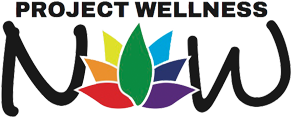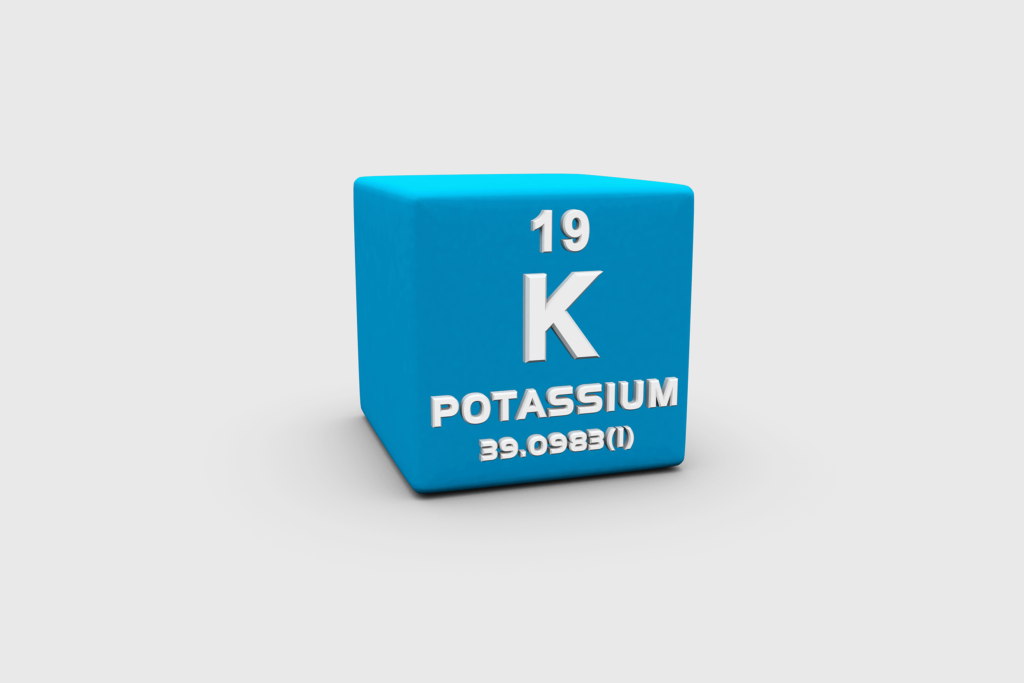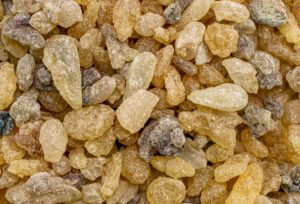By Kristi Ganobsik
Potassium is an electrolyte that helps balance your body fluids, but it’s not your average electrically charged particle. Once dissolved in water, potassium – or K+ – becomes a positively charged mineral electrolyte that takes on the dual role of nourishing your body while also acting as a key signaling agent to ensure that many of your most important energetic functions are well regulated and synchronized.

Summertime and Potassium Deficiency
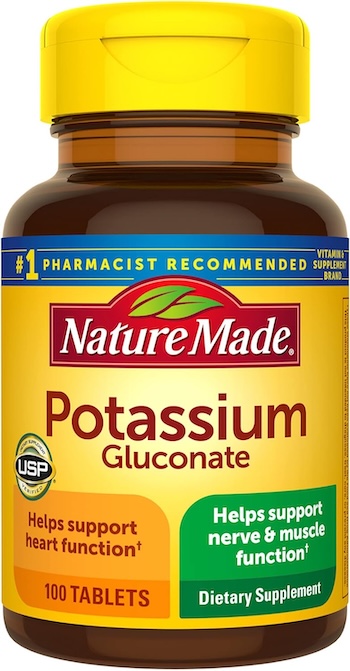
While summer is full of fun on-the-go activities, it’s also the prime time of year when your body’s potassium levels can become depleted. One of the main causes of potassium deficiency is a large loss of fluid, and in summer this electrolyte is released in greater amounts through your sweat glands due to the hotter weather.
A potassium deficiency can also come about due to a number of health, activity, and dietary-related factors, such as:
→ Low Magnesium Levels
→ High-Stress Lifestyle
→ Kidney Inflammation and Acid Accumulation
→ High Endurance Workouts
→ Certain Health Conditions such as Cushing’s and Bartter’s Syndromes
In fact, it’s been estimated that up to 98% of Americans don’t get enough potassium in their diets! Given this mineral’s vast importance, it’s good to be on the lookout for some key signs and symptoms of K+ deficiency, including:
→ Breathing Problems
→ Fatigue and Muscle Weakness
→ Anxiety
→ Insomnia
→ Heart Palpitations
→ Sugar Cravings
→ Muscle Cramps
→ Mood Changes
→ Constipation
→ Digestive Issues
If you feel that you’re consistently experiencing any of these symptoms of potassium deficiency, your doctor can test you for the condition and help determine if you have any underlying causes that could be a contributing factor.
Health Benefits of Potassium
Because of potassium’s indispensable role in regulating fluids and metabolic and nerve signals, keeping your body properly “stocked up” is one of the best moves you can make to enhance your energy and guide your health. Research conducted on this mineral has uncovered an abundance of wellness benefits, including:
→ Regulating blood pressure to reduce the risk of cardiovascular disease
→ Reducing fluid retention
→ Coordinating muscle contractions
→ Sending nerve signals for proper digestion and motor skill functioning
→ Helping prevent strokes, kidney stones, and osteoporosis
→ Regulating blood sugar levels to lower the risk for type II diabetes
→ Effectively moving nutrients into cells for optimal energy metabolism
While it’s recommended to get about 4,700 mg (4.7 grams) of potassium each day, exercise and sweating can release between 100-200 mg an hour, so be sure to replenish.
6 Natural Foods to Help You Replenish Your Potassium
Your body doesn’t hold potassium in storage, so eating foods that are naturally rich in this wellness-elevating electrolyte is the best way to ensure you maintain healthy levels. Take a look at the 6 top fruits and vegetables that help you balance your potassium levels:
Bananas
A mid-sized banana will provide over 400 mg of potassium. Bananas have the added bonus of being high in magnesium, which helps reduce the risk of one of the other leading causes of potassium deficiency, hypomagnesemia.
Spinach
If you’re looking for a potassium option with a little less sugar than bananas, look no further than this health-protective leafy green. Just like bananas, spinach has high levels of magnesium – one cup raw will give you about 24mg, and 167mg of potassium.
Avocados
One black-skinned California avocado has a whopping 660mg of potassium. These superfoods are also excellent sources of omega-3 fatty acids, Vitamins B-6, C, E, K, folate, magnesium, and two key phytochemicals to provide your eyes with vital antioxidant protection.
Mushrooms
A cup of whole mushrooms has 305 mg of potassium and also contains a triple dose of antioxidant agents to help reduce your body’s toxic free radicals and lower your risk for many leading forms of the disease.
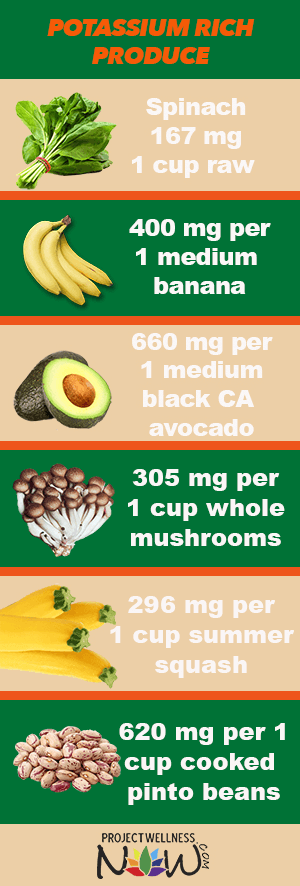
Summer Squash
Summer squash is typically in season from June through September, and just one cup sliced contains about 300 mg of potassium. This potent vegetable has been shown to help lower your risk for cataracts and improve red blood cell production, plus it tastes great marinated on the grill as a shish-kabob!
Pinto Beans
A cup (171 grams) of pinto beans contains about 620 mg of potassium and packs a big punch for your overall health as well. In fact, pinto beans are often the bean of choice for vegetarians because they have less amylase inhibitor than darker beans, which means they can provide better protein digestion. They’re also a low glycemic index food to keep your blood sugar in balance and are high in iron, magnesium, thiamine (B1), and phosphorous.
ABOUT THE AUTHOR:
Kirstie Ganobsik is a content and technical writer and editor specializing in scientific health and wellness topics, including plant-based medicine, telehealth, wellness travel, and holistic practices. She is available to assist with blog articles, website projects, business documentation, e-books, presentations, product reviews, and more. You can view her resume and a snapshot of her digital work here. For help with your upcoming projects, email kirstie@writingahealthylife.com. Ask about the introductory special for the Autumn 2020 launch of Writingahealthylife.com.
YOU MAY ALSO LIKE:
CHAKRA BALANCING GEMSTONES
If you feel sluggish and lack energy, you can be sure that your chakras are not functioning properly. Since chakras govern…
WHAT IS MEDITATION? – IT’S ESSENCE AND BENEFITS
You’ve probably heard about meditation – and perhaps also about some of its many physical, mental, and emotional benefits, such as…
VIRTUAL EVENT FOR GARDENERS…MORE JOY, LESS STRESS!
Gardener Virtual Event, February 15-22 It is going to be THE garden adventure of the year! You’ll discover these plant-saving tips:…
RAW SUNFLOWER SPREAD
Some consider sunflower seeds to be one of the world’s healthiest foods. A handful will supply you with significant amounts of…
FRANKINCENSE – THE KING OF ESSENTIAL OILS
Since ancient times Frankincense has been used for medicinal and religious purposes. Early Egyptians used it in their embalming process. In…
15 NATURAL WAYS TO IMPROVE SKIN ELASTICITY AT ANY AGE
Loving your beautiful skin starts on the inside with daily health and wellness practices designed to promote radiance at any age….
